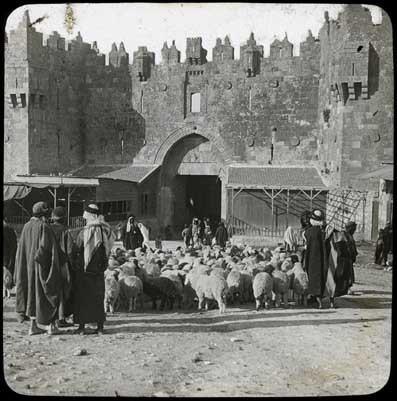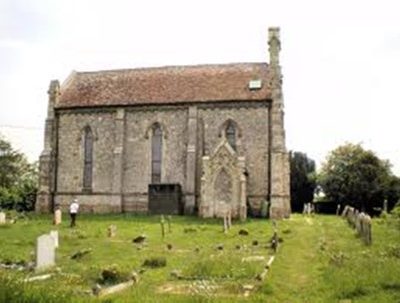Elizabeth the Mother of John the Baptist

Elizabeth is a strong illustration of a faithful, selfless, woman who put the LORD first before her desires. Her yearning to have a child was always there but there was no bitterness or animosity toward the LORD because she did not have a child. Elizabeth can teach us how vital it is to have a strong relationship with the LORD.
Luke 1:1-80
Elizabeth was the wife of the priest Zacharias. Elizabeth and Zacharias lived in the days of Herod, the king of Judaea. Elizabeth was from the daughter of Aaron. This makes Elizabeth from the linage of a priestly family. Elizabeth was righteous before God, walking in all the commandments and ordinances of the Lord blameless. (Luke 1:6). This does not mean they were sinless just that they were both free from fault or defect and dedicated to the LORD.
The relationship between Elizabeth and her husband, Zacharias,was of a loving nurturing relationship. They were old and childless. The childlessness of Elizabeth would have been grounds for a divorce if Zacharias wished it. Their love was such that Zacharias accepted Elizabeth being barren.
Elizabeth and Zacharias both wanted a child and prayed fervently to the LORD they also accepted the Will of the LORD. Zacharias was ministering at the golden altar of incense in the holy place, when he was visited by the angel Gabriel. Gabriel told Zacharias that his wife, who was also of a priestly family, now stricken in years, would give birth to a son who was to be called John, and that he would be the forerunner of the long-expected Messiah (Luke 1:12-17).
When told by the angel Gabriel that his aging wife would give birth to a child destined to become a great prophet, Zacharias did not believe this could be true. This disbelief did not make the angel Gabriel happy. Gabriel remained Zacharias that he stood in the presence of God; and he was sent to speak to Zacharias, and to show him these glad tidings as a punishment for his refusing to believe this message, he was struck dumb and “not able to speak until the day that these things should be performed” (Genesis 1: 19-20).
Zacharias had taken a long time in the temple and the people waiting outside which was the custom. Once Zacharias he came out, he could not speak to them: and they perceived that he had seen a vision in the temple: “for he beckoned unto them, and remained speechless.” (Genesis 1: 21-22). Once his duties in the temple were completed Zacharias returned home but he could not speak and could not share with others of the miracle that had happened to him and his wife Elizabeth. They had waited for so long to have a child and now could not share it.
Luke 1: 24-25 remind us that after Elizabeth had conceived she hid herself for five months. The Lord dealt with Elizabeth in the days wherein he looked on me, to take away her reproach among men. She had been barren and was in old age. Elizabeth hid herself for five months. There could be no negative energy that touched Elizabeth and her unborn baby John. Elizabeth and John remained pure and were favored by the LORD God.
The angel Gabriel was sent from God unto Galilee to visit Mary; who would conceive Jesus. Mary was told by Gabriel that the Holy Spirit would come upon her, and the power of the Highest would overshadow her: therefore also that holy thing which shall be born of her shall be called the Son of God. Mary was told that her cousin Elizabeth also had conceived a son in her old age, and she was in her sixth month. With the LORD God nothing shall be impossible. Mary could not tell anyone what had happened to her and was sent to visit her cousin Elizabeth. Once Mary greeted Elizabeth and Elizabeth heard the salutation the baby leaped in her womb; and Elizabeth was filled with the Holy Spirit.
Elizabeth had been filled with the Holy Spirit when she was six months pregnant. What a blessing that must have been to have John the Baptist and Jesus meet while still in the womb. Mary stayed with Elizabeth for about three months and then returned to her own house.
Nine months passed away, and it was time for Elizabeth to give birth to her son John. The LORD had showed great mercy upon Elizabeth and the neighbors and her cousins all rejoiced with her. (Genesis 57-58).
The eight day was the traditional day to have the baby circumcised and the name to be given to the child. When Elizabeth said the child’s name would be John the relatives disputed this name saying that there were no Johns in their family line. That is when Zacharias wrote on a “writing tablet,” “His name is John,” his mouth was opened, and he was filled with the Holy Spirit and prophesied and praised the LORD God. (Genesis 57-79). John the Baptist, thus “born out of due time,” “waxed strong in spirit, and was in the deserts till the day of his showing to Israel.” (Genesis 1:80).
Elizabeth is a strong illustration of a faithful, selfless, woman who put the LORD first before her desires. Her yearning to have a child was always there but there was no bitterness or animosity toward the LORD because she did not have a child. Elizabeth can teach us how vital it is to have a strong relationship with the LORD.
Cite Article Source
MLA Style Citation:
Holstein, Joanne “Elizabeth the Mother of John the Baptist:.” Becker Bible Studies Library Oct 2014.<https://guidedbiblestudies.com/?p=1464,>.
APA Style Citation:
Holstein, Joanne (2014, October) “Elizabeth the Mother of John the Baptist:.” Becker Bible Studies Library. Retrieved from https://guidedbiblestudies.com/?p=1464,.
Chicago Style Citation:
Holstein, Joanne (2014) “Elizabeth the Mother of John the Baptist:.” Becker Bible Studies Library (October), https://guidedbiblestudies.com/?p=1464, (accessed).


